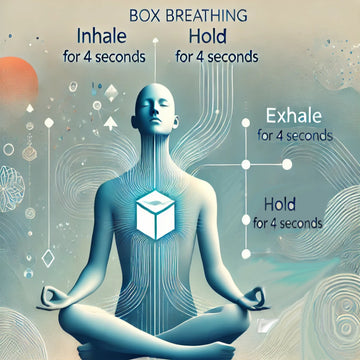Breathwork is vital to overall performance because oxygen fuels the body's cells.
The importance of breathwork in enhancing both physical and mental performance, particularly for active individuals and athletes, is underscored by a growing body of research. Breathwork, defined as the deliberate control of breathing patterns, has been shown to influence various physiological and psychological outcomes, which are critical for optimising performance and recovery.
Firstly, breathwork can significantly affect mental fatigue, a common challenge faced by athletes. Research indicates that athletes can differentiate between physical and mental fatigue, which is essential for effective management strategies (Russell et al., 2019). Mental fatigue can impair decision-making and performance, as evidenced by studies showing that mental fatigue induced by social media use negatively impacts endurance and decision-making in sports (Fortes et al., 2021). Thus, incorporating breathwork as a recovery strategy may help mitigate these effects, allowing athletes to maintain optimal cognitive function during performance.
Moreover, the physiological benefits of breathwork are well-documented. Slow breathing techniques have been linked to improved autonomic nervous system function, which can enhance cardiovascular health and reduce stress levels (Zaccaro et al., 2018; Russo et al., 2017). For instance, diaphragmatic breathing has been shown to lower cortisol levels, a hormone associated with stress, thereby promoting a state of relaxation that is conducive to recovery (Ma et al., 2017; Fincham et al., 2023). This physiological response is crucial for athletes who experience high levels of physical and mental stress during training and competition.
In addition to its physiological benefits, breathwork also fosters psychological resilience. Techniques such as breathing meditation have been shown to enhance attention and mindfulness, which are vital for maintaining focus during high-pressure situations (Mo et al., 2021). Athletes who practice breathwork report improved emotional regulation and reduced feelings of fatigue and stress, contributing to better overall mental health (Fincham, 2023). This is particularly relevant in high-performance sports, where mental clarity and emotional stability can significantly influence outcomes.
Furthermore, the integration of breathwork into recovery protocols can enhance resilience against stressors. Studies suggest that regular practice of breathwork can lead to a sustained decrease in sympathetic reactivity to stress, thereby promoting long-term mental health benefits (Havenith, 2024; Fincham, 2024). This is particularly important for athletes, who often face intense competition and training demands that can lead to burnout if not managed effectively.
Take Saurabh Singh, a Guardian Tape Combat Athlete, for example. He’s incorporated breathwork into his daily routine, using Guardian Tape nose strips to optimise his breathing during morning runs, yoga, and Muay Thai training sessions.
Saurabh swears by a technique called 'Box Breathing,' which involves inhaling for four seconds, holding for four, exhaling for four, and holding again for four seconds. This simple practice has helped to transform his performance and recovery, and increased his mindfulness, with the benefits positively impacting his overall health.
In conclusion, breathwork serves as a vital tool for enhancing both physical performance and mental recovery in athletes and active individuals. By improving mental clarity, reducing stress, and fostering physiological resilience, breathwork can play a crucial role in optimising athletic performance and overall well-being.
Take control of your breath, and you’ll be amazed at how it transforms your training and everyday life. Try integrating Box Breathing into your routine and see the difference it makes!
Check out Guardian Tapes' range of mouth tape and nose strips, designed to help you Protect Your Breath - so that you can work harder, recover faster, and become your greatest self


